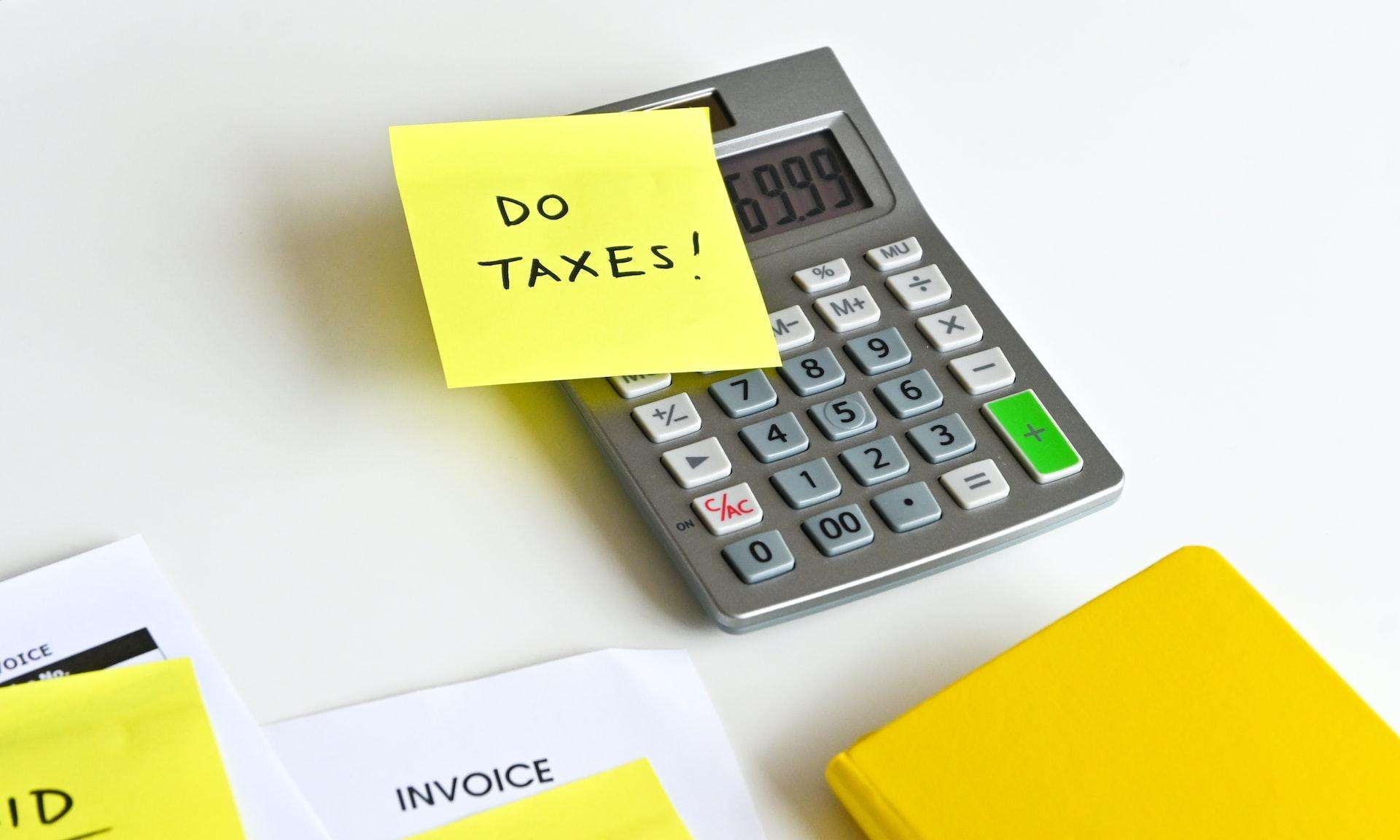A Complete Guide to Singapore Corporate Tax (2024)
Explore the strategic advantages of Singapore’s corporate tax system, boasting a competitive 17% tax rate and an array of tax incentives that position the city-state as an attractive destination for businesses. In this guide we will delve into everything you need to know about corporate tax in Singapore, including the different types of tax returns, how to file them, and more!

If you are a business owner in Singapore, you are well aware that there are numerous financial benefits and regulations when it comes to the management of a company. One key aspect that combines the two aforementioned elements is Singapore’s Corporate Tax, which consists of one of the lowest corporate tax rates in Asia and is a primary compliance requirement for companies. Understanding all the facets of corporate tax will help you set the basis for your company’s stability and growth. Without further ado, let’s dive into it!
What Is Corporate Tax and Corporate Tax Rate?
Corporate tax is tax levied by the government of a country on the profit of a company. In Singapore, the government body in charge of corporate tax compliance is the Inland Revenue Authority of Singapore (IRAS). As a way of attracting business development and investment from across the world, Singapore has consistently decreased its corporate tax rate – the tax deduction percentage imposed on the taxable income of a company – from 25% in the 1990s to a flat rate of 17% in the present.
Taxable income can consist of any of the following:
- Profits resulting from involvement in trade or business
- Investment earnings, including interest and income from rental properties.
- Royalties, premiums, and other property-related profits
- Gains other than the usual income that are considered as revenue.
For instance, if a company that does not benefit from any tax exemptions were to have a profit of S$500,000 in a financial year, it would incur S$85,000 (17% of the total chargeable income) in corporate taxes.
Important Note: Singapore follows a territorial principle of taxation, unlike, for example, the US and many other countries which tax world-wide income. All Singapore-registered companies and foreign companies are required to pay corporate taxes based on their annual profits incurred in Singapore or remitted to Singapore. Hence, Singapore-sourced profit is always taxed, while foreign income is only taxed if remitted to Singapore.
Corporate Tax Exemptions and Incentives
Singapore companies are eligible for several tax incentives and exemptions that serve to decrease their required corporate tax payment. It’s important to note that to qualify for these benefits, your company must be a tax resident in Singapore.
Tax Residence in Singapore
The tax residence status of a Singapore company is determined by one key detail – the company must be “controlled and managed” in Singapore, which refers to the company’s strategic decision-making process being conducted in Singapore. In most cases, the location of a company’s control and management depends on where the board meetings are held and where the key directors are located. Additionally, tax residence is granted on a year-to-year basis, meaning that your company may be a tax resident for one Year of Assessment (YA) but not for the next.
To learn about all the aspects of tax residence in Singapore, read our comprehensive Certificate of Residence guide.
Tax Exemption Scheme for New Startups
To incentivize the establishment of startups in the Lion City, the IRAS has arranged a corporate tax exemption scheme that benefits these companies for their first 3 Years of Assessment (YAs). This scheme consists of the following exemptions:
- 75% of the initial S$100,000 of chargeable income is exempted
- 50% of the next S$100,000 of chargeable income is exempted
| Amount of taxable income, Singapore dollars |
Automatic tax deduction, % |
Effective tax rate, % |
|---|---|---|
| First 100,000 (fr 1 till 100,000) |
75% |
4.25% |
| Next 100,000 (fr 100,001 till 200,000) |
50% |
8.5% |
| Above 200,000 (from 200,001 and above) |
0 |
17% |
For example, if a qualifying company has a chargeable income of S$50,000 for a YA, S$37,500 of the income (75%) will be exempted from corporate taxes and the remaining amount (S$12,500) will be taxed at the flat rate of 17%. As a result, the required tax payable would be S$2,125.
The above exemption is given automatically, but the company has to calculate the income and the tax accordingly at the time of filing the Tax Return form, such as Estimated Chargeable Income and Form C-S/ Form C-S (Lite)/ Form C.
Partial Tax Exemption (PTE) Scheme for other Companies
If a company does not qualify for the startup tax exemptions scheme or has already benefited from the scheme for three consecutive YAs, it can enjoy the benefits of partial tax exemption scheme for companies. The exemptions of this scheme are as follows:
- 75% of the initial S$10,000 of chargeable income is exempted
- 50% of the next S$190,000 of chargeable income is exempted
| Amount of taxable income, Singapore dollars |
Automatic tax deduction, % |
Effective tax rate, % |
|---|---|---|
| First 10,000 (fr 1 till 10,000) |
75% |
4.25% |
| Next 190,000 (fr 10,001 till 200,000) |
50% |
8.5% |
| Above 200,000 (from 200,001 and above) |
0 |
17% |
To illustrate how the exemptions are applied, let’s take a look at an example. If a company has a chargeable income of S$500,000 for a YA, S$7,500 (75%) of the initial S$10,000 will be exempted from corporate taxes and S$95,000 (50%) of the next S$190,000 will be exempted. Thus, the company would be exempted for a total of S$102,500, but will be taxed on the remaining amount (S$397,500), which would yield a tax payable of S$67,575 when the 17% tax rate is applied.
Additional Tax Exemptions
There is an abundant number of other tax exemptions that your company can benefit from. These, however, often depend on your company’s industry and other factors. Here, we have compiled a list of the most common ones:
- Double Tax Deduction for Internationalization Scheme
- Development and Expansion Incentive (DEI)
- Pioneer Certificate Incentive (PC)
- Finance and Treasury Centre (FTC) Incentive
- Global Trader Programme
Want to know how much tax your company will pay?
Use our Corporate Tax Calculator to instantly calculate how much tax your company will pay depending on the net profit:
Types of Singapore Tax Return for Companies
Singapore companies are required to file 2 types of corporate income tax return every year: Estimated Chargeable Income and Form C/ C-S/ Lite.
Estimated Chargeable Income
Estimated Chargeable Income (ECI) in Singapore refers to an estimate of a company’s taxable income for a specific Year of Assessment (YA). All companies except the following are required to submit their ECI to the IRAS within three months of the financial year end.
- Companies with revenue of less than S$5 million and with nil ECI
- Other specific types of companies (e.g. Foreign Universities)
Form C/ C-S/ Lite
Form C/ Form C-S/ Form C-S (Lite) are the three types of corporate tax returns where your company can declare its actual chargeable income. These forms offer a more comprehensive overview of your company’s financial status compared to the ECI report, but your company is only required to file one of the three.
Form C
Form C is the standard tax return for companies in Singapore. It is a comprehensive form that requires detailed information about your company’s income, expenses, and other financial details. Filing Form C can be complex and time-consuming, especially for companies with more complex tax affairs, which is why it is advisable to engage a professional tax advisor such as Intracorp to assist you.
Form C-S
Form C-S is a simplified tax return designed for small companies with straightforward tax affairs. It requires less detailed information compared to Form C but still requires accurate reporting of your company’s income and expenses. To qualify to file Form C-S, your company must meet the following criteria:
- Be incorporated in Singapore
- Annual revenue does not exceed S$5 million
- All income is subject to a 17% corporate tax rate.
- The company does not claim Carry-back of Current Year Capital Allowances/Losses, Investment Allowance, Group Relief and Foreign Tax Credit/Deducted at Source for a YA.
Form C-S (Lite)
Form C-S Lite is even simpler since it requires minimal information (6 fields) and is the easiest tax return to complete, making it suitable for micro-companies with limited resources. To qualify for Form C-S Lite, your company must qualify for Form C-S filing and have an annual revenue of S$200,000 or below.
Important Note: No matter whether your company files Form C, Form C-S, or Form C-S (Lite), it must adhere to the yearly November 30th deadline.
Filing Corporate Taxes in Singapore
The corporate income tax filing process must be completed through the IRAS’ myTax Portal, where the process can be carried out by a company representative or an engaged tax agent. Here is an overview of the steps to file corporate tax in Singapore:
- Acquire a thorough understanding of the steps to file the tax return. The IRAS has official guides for companies and tax agents: ECI guide or Form C/ C-S/ Lite guide.
- Login to the myTax Portal with the company’s CorpPass account.
- Click “Corporate Tax” on the navigation toolbar and select the desired tax return to be filed (“File ECI” or “File Form C-S/ C”).
- Follow the steps and instructions of the respective tax filing process.
Steps After Corporate Tax Filing in Singapore
As your company files ECI and Form C/ C-S/ Lite, the IRAS will issue your company a Notice of Assessment (NOA) – which represents the main tax evaluation – to inform you about the status of the respective tax filing submissions.
You can expect for your company to be issued the NOA within a few weeks after submission of the tax return and you must pay all NOA tax payables within 1 month of the issuance date. To learn more about NOAs, check out our official Notice of Assessment guide.
Wrap Up
With a 17% corporate tax rate, territorial tax approach, automatic deductions and exemptions and many other tax benefits, Singapore has become one of the leading worldwide destinations for company formation. One of the key compliance requirements for companies is to file corporate income tax, which deals with a variety of documentation such as Estimated Chargeable Income and Form C/ C-S/ Lite. Amongst the corporate services we provide at Intracorp, tax filing is a service that our clients have praised over the years. We encourage you to reach out to us with any questions or to engage our tax filing services.


